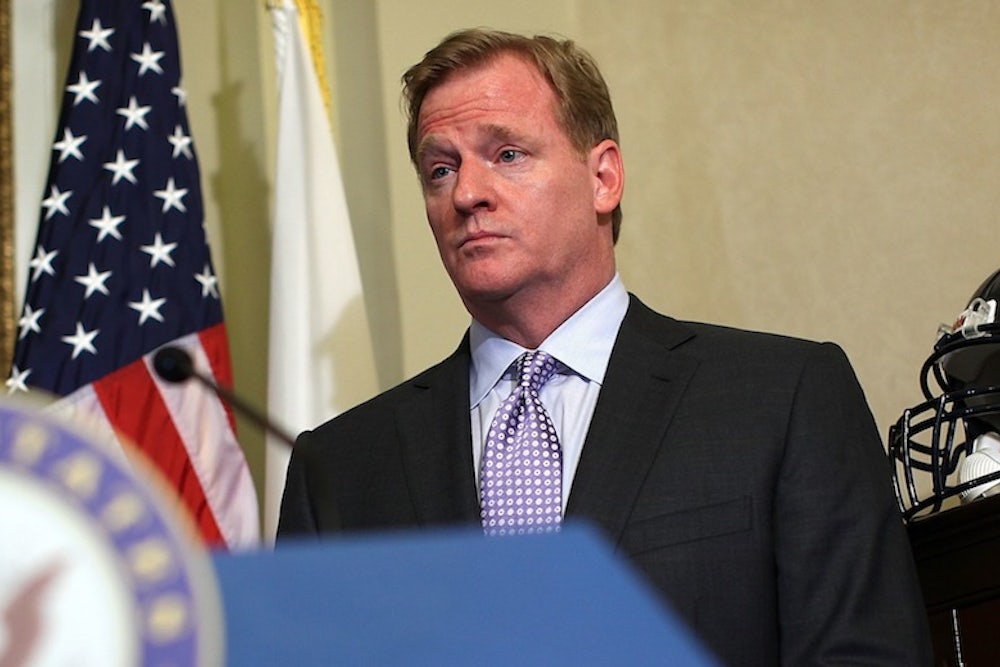The law is a crude instrument. On Tuesday, a federal judge held up a class-action settlement in which many retired National Football League players accused the NFL of knowingly obscuring the ill consequences of head trauma. A $765 million deal had been struck in August. But the judge, Anita Brody, is questioning whether the settlement is too small. One leaps to agree: Yes! It’s far too small! It should be billions and billions!
But while Brody indeed left herself room, in her decision, to decide that it should eventually be billions, she would not be sharing the reasoning of an observer who believes the players are not getting a fair shake. Her objection is to whether the settlement amount is consistent with the internal logic of the settlement itself. Specifically, she is concerned that the $675 million that is actually set aside to pay players—according to a complicated, tiered scheme agreed to by both sides—simply will not be enough. “It is difficult to see how the Monetary Award Fund would have the funds available over its lifespan to pay all claimants at these significant award levels,” she wrote.
Is the problem that the players deserve more? No. That the NFL need not admit a scintilla of guilt, culpability, or wrongdoing? Nope. That there won’t be discovery as a result of the settlement? Nunh-unh. Even sniping among various plaintiff factions—ESPN’s Fainauru brothers have a good rundown—has been centered around the question of whether the allotted funds are enough to fulfill the settlement’s own parameters, not whether the settlement’s parameters are all wrong.
What should be done is difficult to say. The settlement could still come apart, particularly if, as several lawyers threatened, enough plaintiffs opt out. Notwithstanding various exemptions and subsidies the NFL receives from the federal government (like tax-exempt status), it and its teams are private entities, and this is a private matter. And it was distasteful when Congress investigated steroids in baseball. Yet on the other hand, it is hard to deny that there is a broader public interest in seeing this settled equitably. And it is telling that the best statement I saw related to Tuesday’s news came from Rep. Linda Sanchez, who chaired hearings held in 2009 probing concussions in the NFL. She said: “The settlement does not do enough to ensure that the NFL is taking all the necessary precautions to protect its active and retired players.” Even if they find a little more money to fulfill the settlement’s own guidelines, that will remain true.
